“I’m always saying, pay attention to the quietest people. It doesn’t mean they don’t have something to say; it just means they’re not comfortable saying it yet,” observed Andrea Baker, the executive director of En2Action, a San Francisco nonprofit that works to promote equity and transformative social good. Elevating community perspectives to enable change is critical to her organization’s work. “Our job is to build comfort,” said Andrea. “That’s when they start finding their voice.”
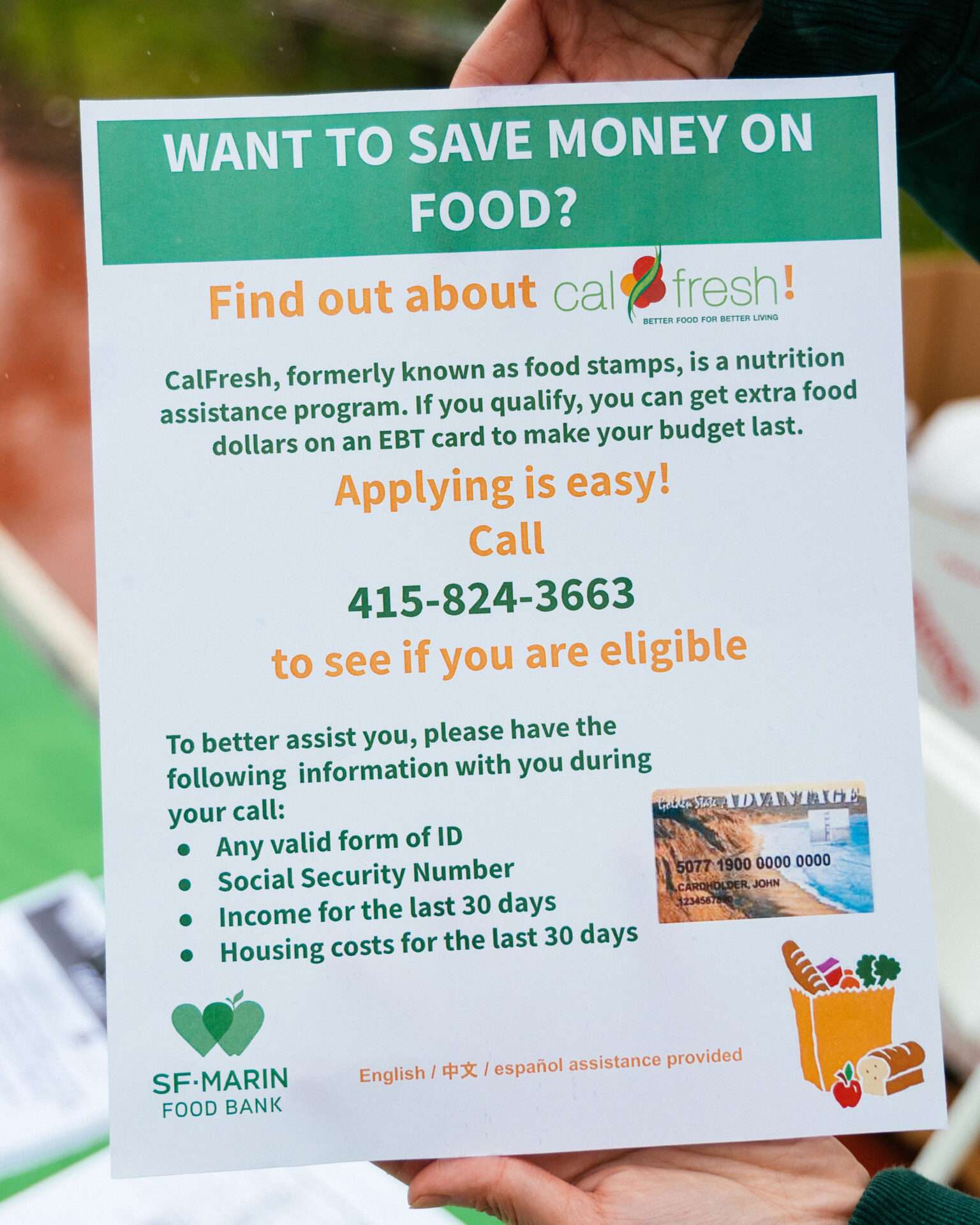
En2Action is a vital community partner of the Food Bank and has extensive experience conducting robust community engagement that centers racial equity and gathers input from diverse communities to inform community and economic development planning. En2Action is collaborating with the Food Bank on several initiatives that address root causes of hunger in San Francisco and Marin, including the Root Cause Action Learning & Leading to achieve Food SecuritY in Marin Project, also known as RALLY Marin.
Led and facilitated by En2Action, the RALLY Marin Project is a one-year planning grant and engagement effort supported by Feeding America that centers the wisdom of people experiencing food insecurity, engages a task force of community-based organizations and multi-service providers with a goal toward removing systemic barriers to CalFresh benefits in Marin County, which disproportionately impacts people of color.
“Our work with RALLY Marin is, again, about elevating community voices. We are reaching out to food providers, pantries, and other organizations that go beyond just providing food. In particular, with this program, we’re looking at CalFresh and why more folks of color are not utilizing it, particularly in Latinx communities.”
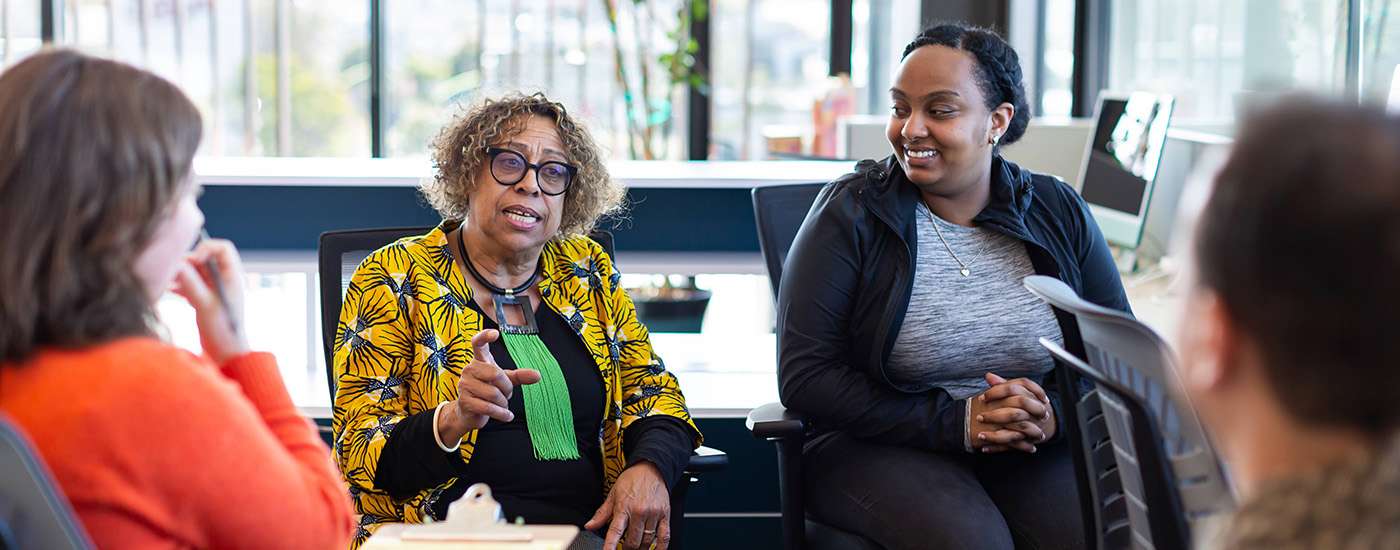
Rooted in Community
When we spoke to Andrea, the nonprofit had just moved into the new Southeast Community Center in Bayview-Hunters Point. A Black, indigenous, and people of color (BIPOC)-led organization, En2Action’s work includes a history of initiatives that intersect food, racial justice, and economic equity. Looking out of the office space windows, she observed that many of the challenges facing the neighborhood and other communities of color in the City are rooted in historic racist policies such as redlining and urban renewal that displaced thousands of Black Americans — erasing generational wealth in the process.
“How do most families build wealth in this area? You build it through real estate; you buy a home. It supports your kid going to college. You can help somebody open a business. That was taken from us,” she says. She notes that those antecedent inequities, compounded by the region’s high cost of living, contributed to San Francisco’s shrinking Black population — from around 13% in the 1980s to under 5% today. “I have seen this neighborhood go from 75% African American to where we are today; just about 30% of the Bayview population is Black.”
Andrea wants to help the remaining enclaves of color in the City thrive and believes food is a catalyst for community development.
“Food has been a way out for many people of color and immigrant communities. It’s been a way out for a business, a catering business, a food truck, a restaurant,” says Andrea. Four years ago, En2Action launched the Bayview Bistro food hub, transforming a vacant lot into a festive gathering space featuring a variety of savory cuisines from Bayview-based vendors. But when the pandemic halted in-person gatherings, life moved online almost overnight, forcing the nonprofit to pivot. The shift was challenging, as they had to acquire a commercial kitchen and develop Bayview Bistro boxes for online food ordering. Its reach was expanded further through pandemic resources to fight hunger. “And that kept our vendors going. Some vendors who’ve worked with us said, ‘I kept my lights on.’ And that was an amazing thing.”
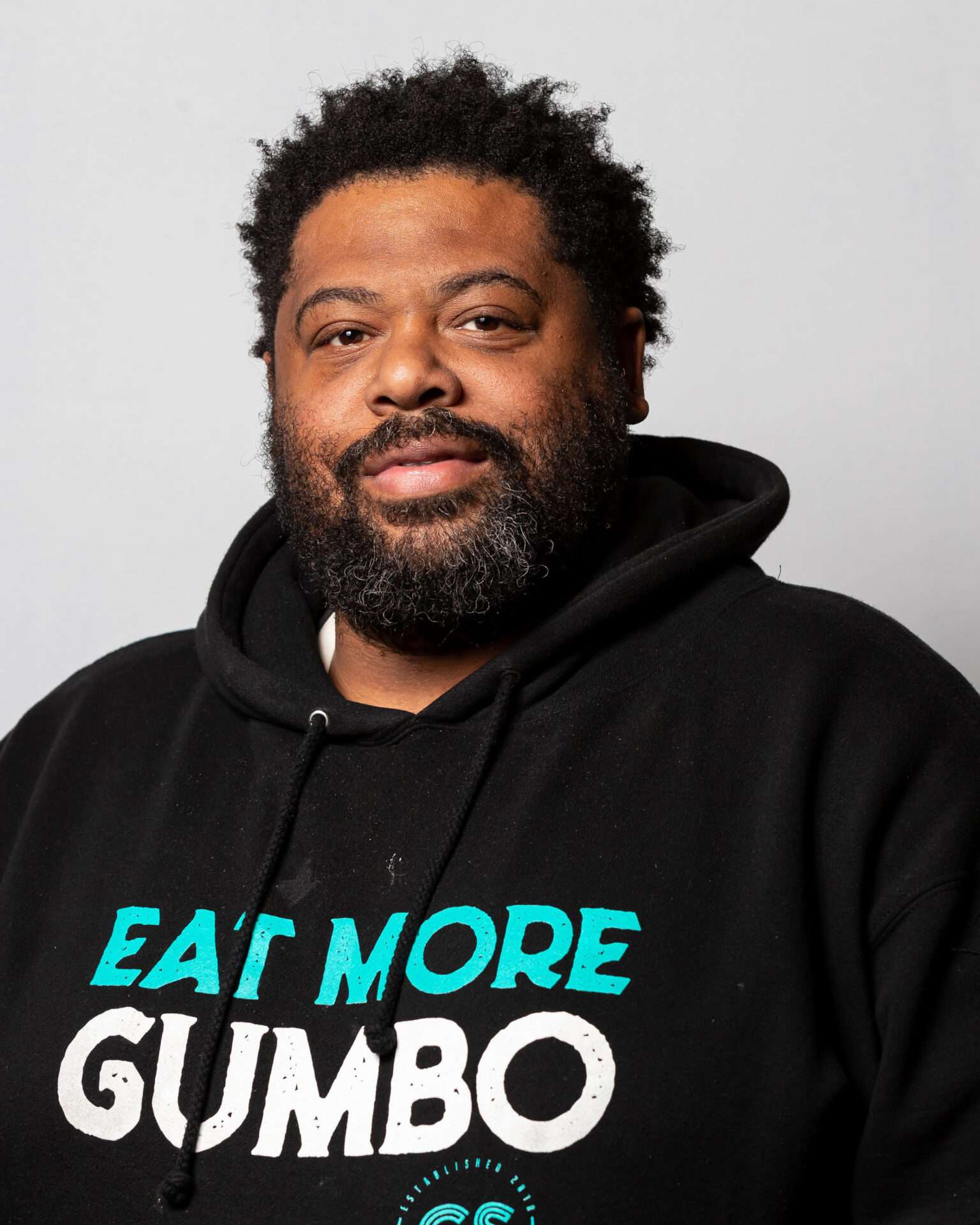
The learnings from Bayview Bistro and other neighborhood-focused economic development programs, including Sell Black — a digital marketing program to increase the online presence of Black businesses — contributed to the development of its Ujamaa Kitchen. Modeled on the fourth principle of Kwanzaa — cooperative economics — the initiative is an incubator for food entrepreneurs that features a six-month culinary boot camp, certification to operate a commercial kitchen, and a myriad of business mentorship services. Ujamaa Kitchen alum Chef Dontaye Ball, whose pop-up restaurant Gumbo Social specializes in gumbo and soul food, has high praise for Andrea.
“You just look at her impact on our business. Once we got access to that kitchen, that opened the door to be able to push Gumbo Social forward,” Ball said. “Over $35,000 in sales came directly from referrals or opportunities that came directly from En2Action,” he added. “For some people, that’s not a lot, but for us, it’s a game changer. That’s two months of payroll; that gives us an opportunity to build for the future.” That future included a brick-and-mortar Gumbo Social restaurant that opened in early June in the Bayview. And that is an outcome that En2Action enthusiastically applauds. “It’s really important to me, to us, that we are not simply giving fish. We are teaching folks how to fish,” said Andrea. “Food is an empowering thing.”
Getting Perspectives on Marin
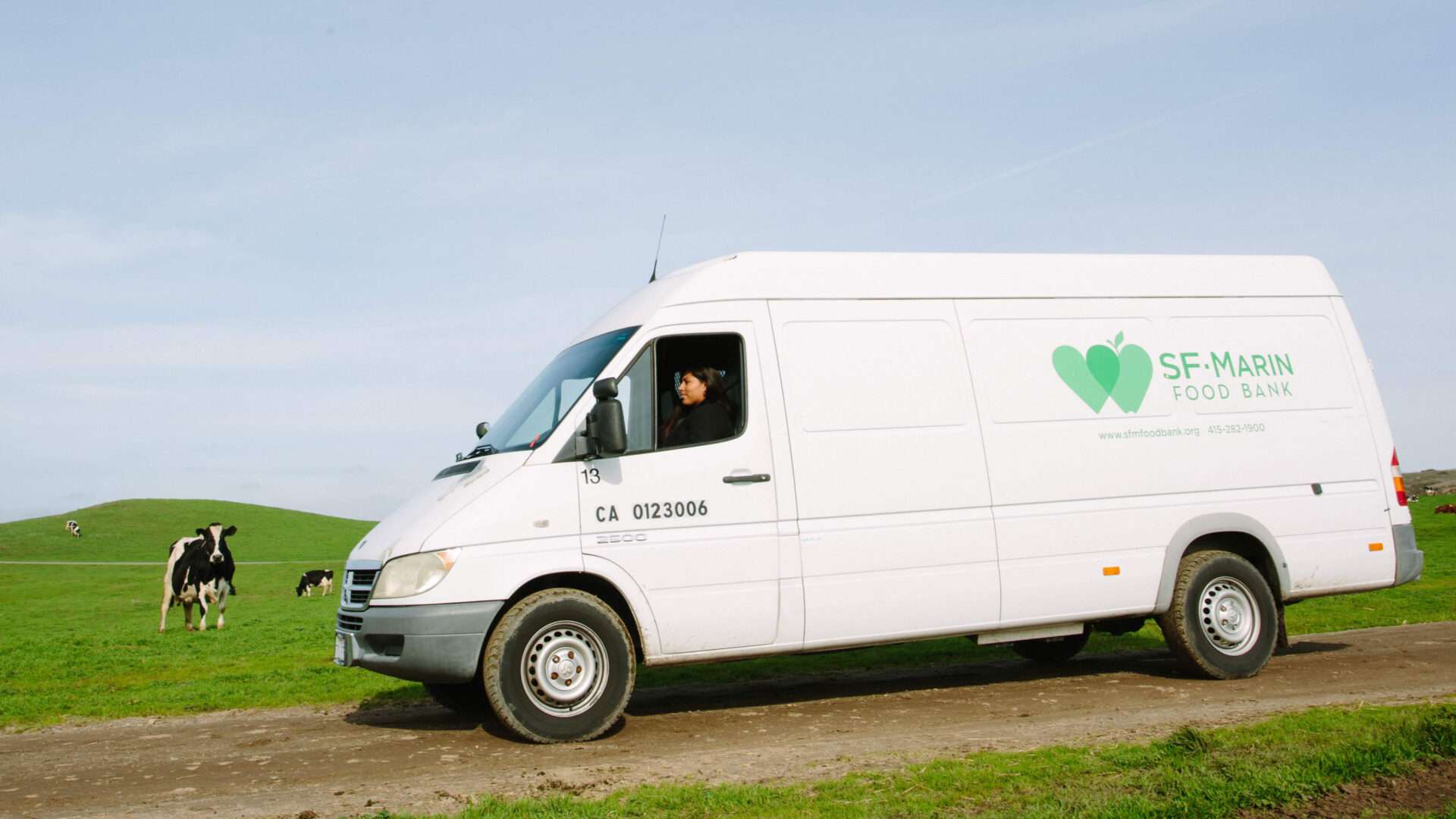
For several months En2Action’s community empowerment lens has been focused on a region rife with systemic inequities 50 miles north of the Bayview. RaceCounts.org ranks Marin County as the second most racially disparate county in California, finding the Latinx community the most impacted across all disparity indicators. Twenty-five percent of Latinx children in the county live below the federal poverty level. The RALLY Marin initiative, led by En2Action, features a unique partnership with a task force of community-based organizations seeking to identify and elevate food insecurity solutions that prioritize the lived experiences and perspectives of people most impacted by the issue. Key to finding those solutions is the targeted community outreach conducted through RALLY Marin, which includes listening with intentionality to the concerns of Latinx residents who may qualify for food assistance. The results have been more than revealing.
“The level of information from community members we were able to hear was authentic, and heart-centered,” said the Food Bank’s Senior Program Manager Alex Danino, reflecting on the focus groups led by En2Action in late April. “There were super-rich discussions that spoke to the challenges and the opportunities for growth,” she added. As part of the team developing recommendations and plans for implementing learnings from RALLY Marin, Alex was impressed by the participant feedback in the listening sessions. “I believe the feedback will tell us how and what we can do next on our outreach efforts,” she observed. “A new way of doing our work is emerging, including how we are working with community partners, the county and co-creating options for access, all based on community voices.”
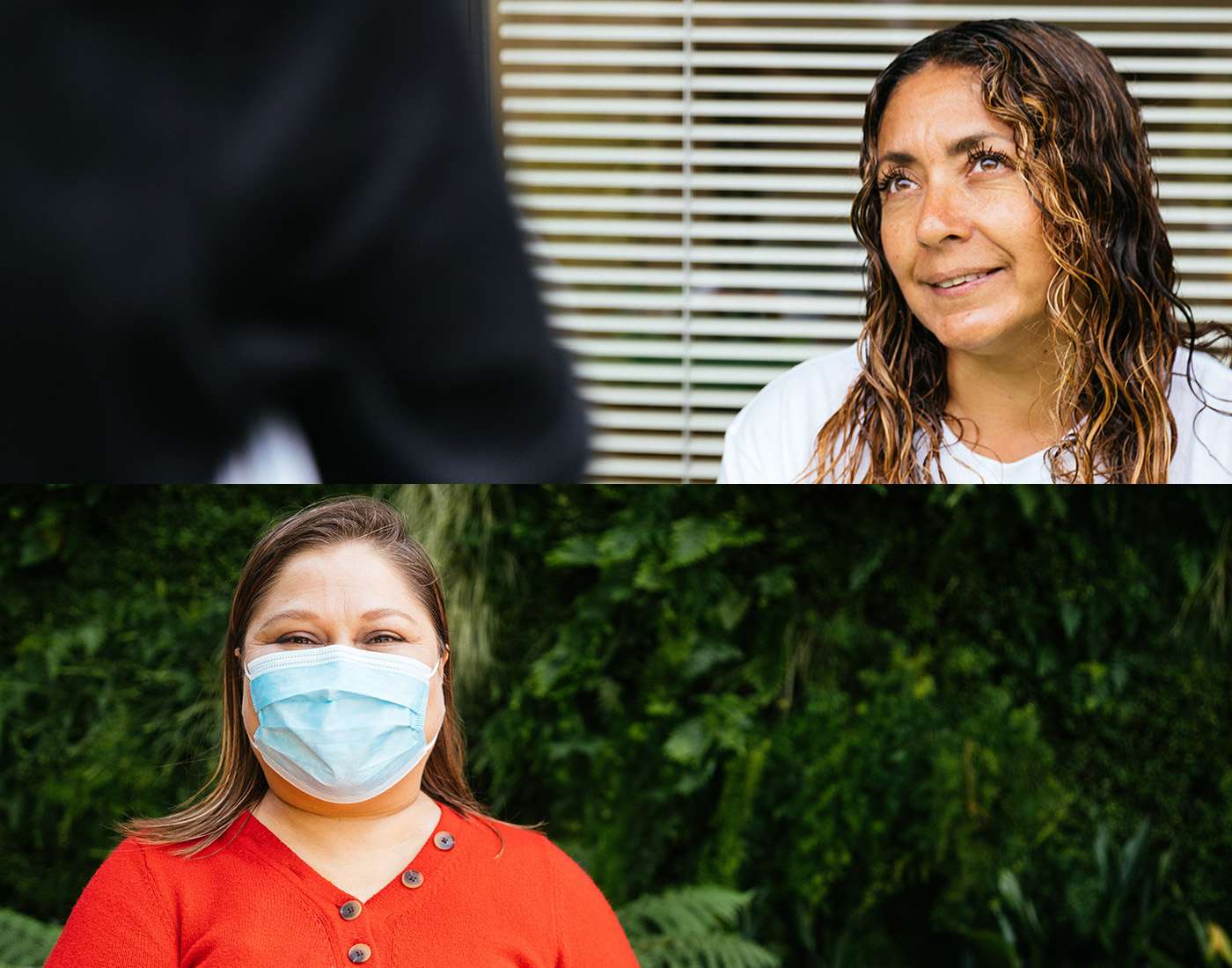
Liliana Sandoval, Associate Director of Programs, Outreach for CalFresh, looks forward to the outcomes revealed from the focus groups. “En2Action is going to gather all that feedback, analyze it and propose solutions that we could then take for more access and utilization of CalFresh,” Liliana said. And she adds that important questions will arise from these community engagement efforts. “How could we bring Marin County administrators into the fold and get them involved in co-creating solutions? What can the county do with this information that we’ve gotten directly from people who have not accessed the program because of barriers? Just what work needs to be done at all levels?” En2Action will continue its outreach, partnership, and analysis efforts through RALLY Marin, delivering a Community Plan in the early summer.
As for Andrea Baker, she firmly believes providing community members opportunities to be heard and ask authentic questions about their needs are catalysts for real change, whether in Marin or San Francisco’s Bayview. “If we can engage, empower, and then provide the resources for people to act, then I think we can get a whole lot of stuff done,” she said. Pointing to an En2Action team gathered in a meeting room, “You know, the 12 of us here can’t do it all, but if the 12 of us here, every year, can impact one person and those people can go out and impact one more person, I’m all for that. I can live with those numbers.”
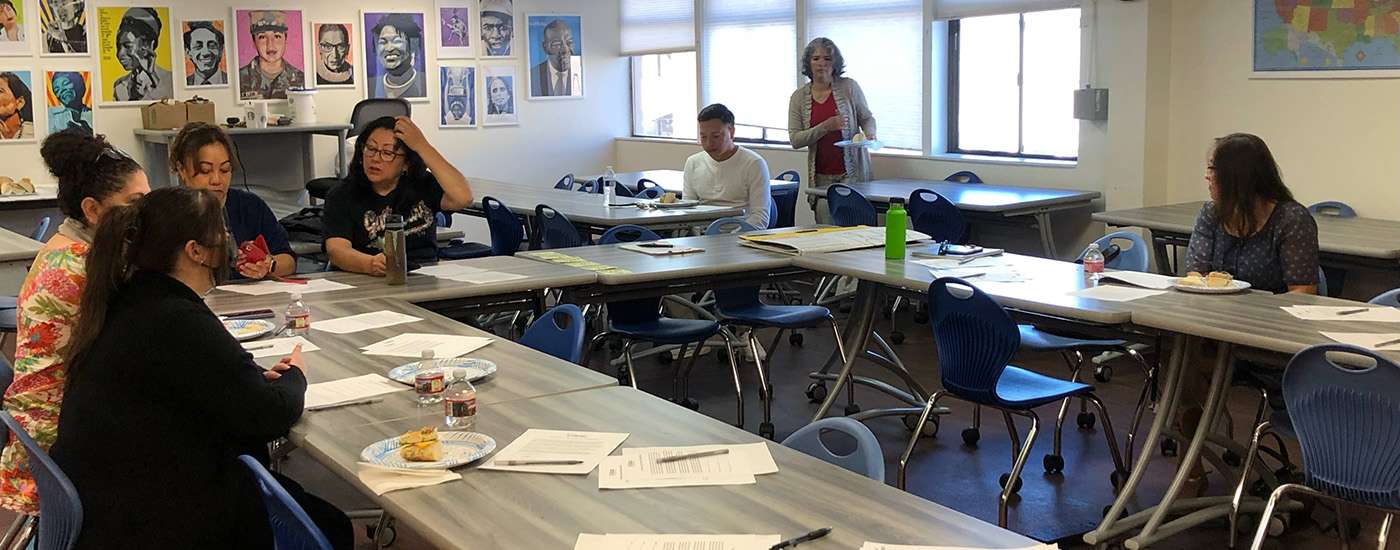



Share